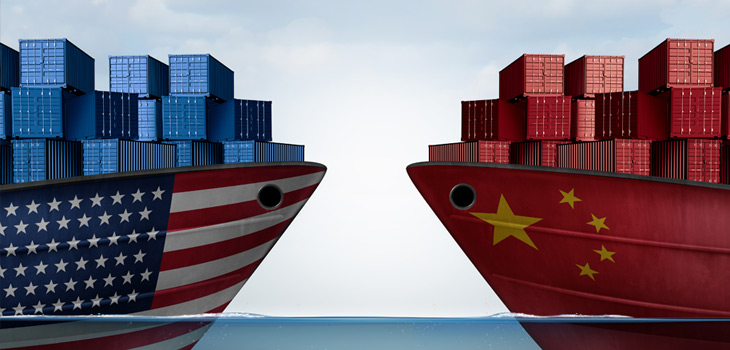Dear Mr. President, no one wins with tariffs. If I had the ear of President Trump, that’s exactly what I would tell him. While I believe he believes his tough talk on tariffs is a means to deliver on his campaign promises to Make America Great Again and Put America First, I also believe they are misguided and unnecessary.
First, I’d like to state the obvious.
The U.S. economy is doing great with the current trade deals it has in place. U.S. multinationals are selling into other countries profitably. Consider the numbers: U.S. GDP grew 4.1% in the second quarter of 20181, the highest growth rate since the third quarter of 2014. And just about everyone has a job, with unemployment sitting at just 3.9%.2 The New York Times reports that even the least educated Americans and those hardest hit by the recession are back to work.3 Not surprisingly, consumers are confident and they are spending.
This is a very good news story
Which is why I don’t understand the President’s decision to threaten a trade war with China by raising the rate of tariffs on $200B of Chinese goods to 25% from 10%. Not surprisingly, China has responded by threatening to tax an additional $60B a year worth of imports from the U.S.4
Increasing tariffs is risky business that affects everyone, not just businesses and investors. Tariffs are an added tax placed on specific finished goods and raw materials. That increased cost is ultimately passed on to the consumer, who will choose to pay or not. If they choose the latter option, then businesses fail. If the cost cannot be passed on to the end user, margins are eroded, people lose jobs and again, companies fail. It’s that simple. Beyond individual businesses, higher costs and prices lead to inflation for the broader economy, which in turn will lead the central bank to raise interest rates, increasing the cost of borrowing.
Bottom line
Contrary to the President’s recent tweet that his tariffs are working big time5 they really aren’t and here’s why. If all parties decide to stand their ground by imposing more tariffs, which is what seems to be happening, then everybody loses. The immediate result will be pain on both sides of the trade border. In the U.S., all of the growth that the President’s tax and deregulation policies have created will be curbed and maybe even negated. It’s already happening. The President has had to promise $12B in subsidies6 to U.S. farmers who are among the first casualties of the trade wars he is triggering. Iconic American brand Harley-Davidson has also announced it is moving production to Thailand from the U.S. because of the EU’s new tariffs on motorcycles–a direct result of the President’s steel and aluminum tariffs.7 I’m also hearing that domestic production of steel and aluminum is not able to keep up with demand as U.S. companies try to avoid paying more for steel coming from the EU.
In effect, the opposite of what President Trump wanted to happen is happening because of tariffs. And I don’t think there will be any long term gain to come. Yes, I agree the current trade deals may not be ideal but no trade agreement is ideal or ever will be. There are always necessary tradeoffs, a give and take so that everyone gains something. Make no mistake, the U.S. has gained from existing trade agreements, however President Trump chooses to paint them as bad for the U.S. My question is, what is the President trying to achieve by imposing or threatening to impose tariffs? As already noted, the U.S. economy is strong, the country is at almost full employment, and people are spending and thriving. Tariffs will only hurt a very good situation.
References
- US GDP growth highest in near 4 years in Q2, Trading Economics
- US jobless rate decreases to 3.9% in July, Trading Economics
- Workers hardest hit by recession are joining in recovery, New York Times
- China threatens new tariffs on $60 billion of US goods, New York Times
- Donald Trump Tweet, Aug. 5, 2018 4:59 am
- US$12b state aid for American farmers, Rural News
- Trump threatens Harley-Davidson, says leaving the US could end its iconic brand, Business Insider

